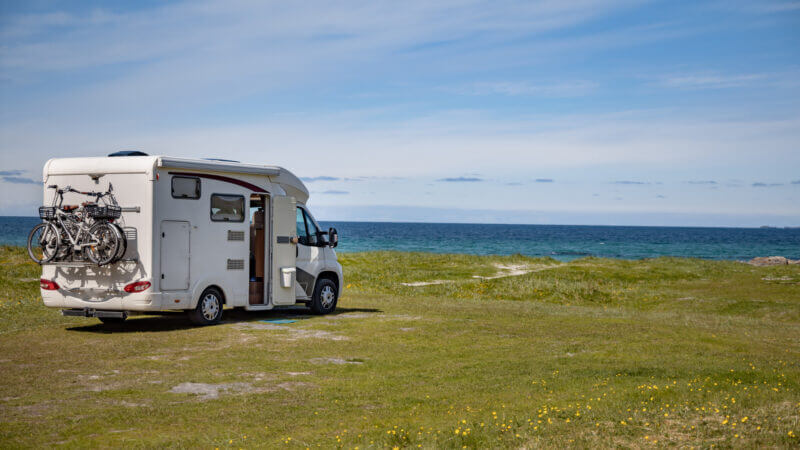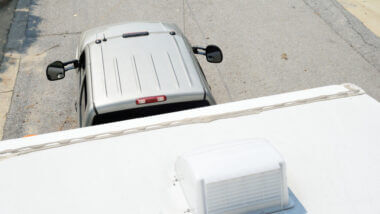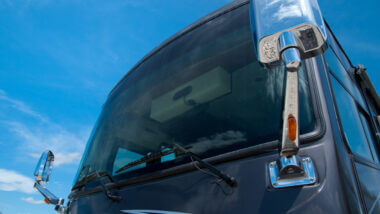Table of Contents Show
Many people use their RV in campgrounds. However, not everyone likes cramming their motorhome into a campground like sardines. Dispersed camping allows RVers and tent campers to have enough room to stretch out and still have some privacy. Today we will look at dispersed camping and how it’s an excellent option for your next adventure.
What Is Dispersed Camping?
Dispersed camping often takes place on public lands. You may find restrictions on the number of days you can camp and possibly how far you must move after you have reached your stay limit.
Be sure you take your time to familiarize yourself with the specific regulations for where you plan to camp.
Dispersed camping has become more popular as campgrounds fill up, especially during busier seasons.
However, it does mean having a plan for potable water and using the restroom. Most of these camping locations won’t have access to any amenities, but some may have a vault toilet if you’re lucky.
Is Dispersed Camping the Same as Boondocking?
Some use the terms dispersed camping and boondocking interchangeably.
Many in the RVing community use boondocking as a slang term to refer to using an RV to camp on public lands.
However, you can go dispersed camping in an RV, tent, or any other shelter.
Whether you’re “dispersed camping” or “boondocking,” you’ll quickly discover the great adventures you can have on public lands.

Benefits of Dispersed Camping
Whether RVers want to enjoy the simplicity of primitive camping or the incredible views of public lands, dispersed camping has many benefits.
It offers a chance to get away from many of the commercialized RV parks and campgrounds.
Dispersed camping helps you avoid distractions and the sense of commercialization that sometimes feels overwhelming.
When you have cable TV, 50 amps of power, and a dump station at your campsite, you may forget all that camping has to offer.
If you have to restrict your power usage and lack a cell signal, you have no choice but to connect with nature.
We love disconnecting from social media and technology for a bit and the low cost.
Many of these public lands don’t charge campers, though local ordinances may require a permit.
Dispersed camping also often allows campers to stay on seemingly undisturbed land. You’ll likely see animals living and interacting with each other in their natural habitat.
Whether you find a bear scavenging for food or a deer grazing, it might surprise you with how many animals you’ll see.
What You Need for Dispersed Camping
Make the most of the time you have to camp and come with a few essential items for dispersed camping. Some may seem obvious but don’t overlook some of these. Let’s get started!
A Way to Generate Power
You’ll need power when camping off the grid. You can generate your power by harnessing solar energy or a portable generator.
If camping in an RV, you’ll likely have a water pump, refrigerator, and lights that all require power.
You may enjoy the silence of solar energy, especially on sunny days.
You can find a solar energy option to meet your needs and budget. Options range from a couple of thousand dollars to $20,000+.
That’s a whole lot of power!
You can also use a generator for power when dispersed camping.
Depending on the size of the generator you choose, the power of these units might surprise you.
However, you may dislike all the noise, especially when running heavy-use items.
You’ll also need to make sure you have an ample amount of gas on hand or access to a gas station for the duration of your camping trip.
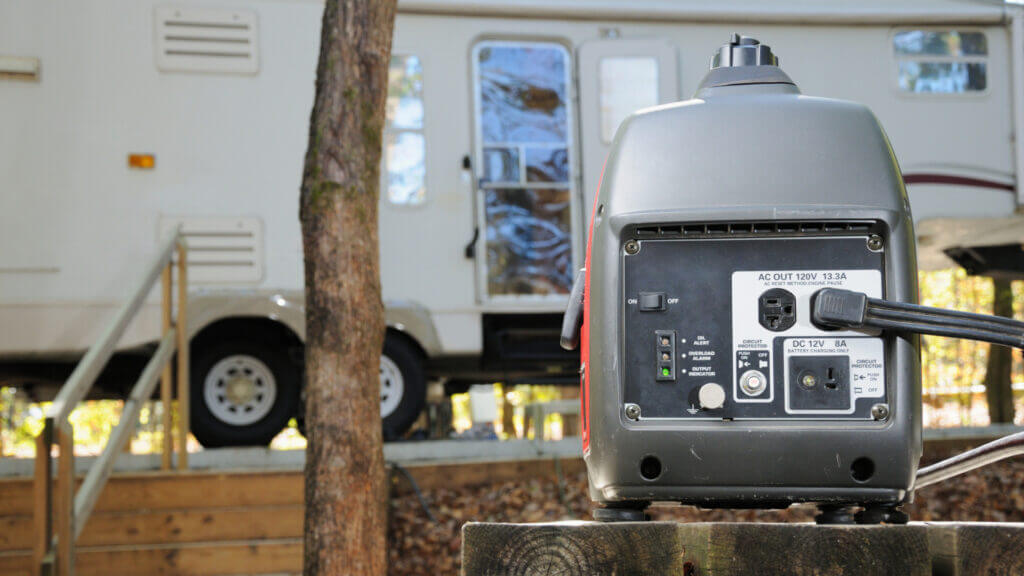
Wastewater and Garbage Management
The popular saying, “pack it in, pack it out,” applies to dispersed camping.
Because it takes place outside of a designated campground, you’ll likely not have access to restroom facilities or dumpsters.
Whatever you bring, you should plan to take it out with you.
If you don’t have a self-contained RV with a restroom, you’ll need a plan for your wastewater.
You should avoid going to the bathroom near a water source and bring a baggie to store toilet paper.
Campers should not leave toilet paper or waste on the ground.
You can protect public lands by digging a 6-inch deep hole away from a water source.
When campers violate these rules, it often leads to camping restrictions or park closures.
Conserve Fresh Water
Camping in the middle of a national forest or on other public lands often means having to manage your water supply.
Unless you travel in a self-contained RV with a freshwater system, you will need to take care of your water needs.
You’ll likely have to put off taking long showers every day or find creative ways to conserve water during essential tasks.
Many RVers conserve their fresh water and reuse it when possible.
For example, some will save running water as the shower warms up to wash the dishes or flush the toilet. You don’t want to waste even a little bit of water.
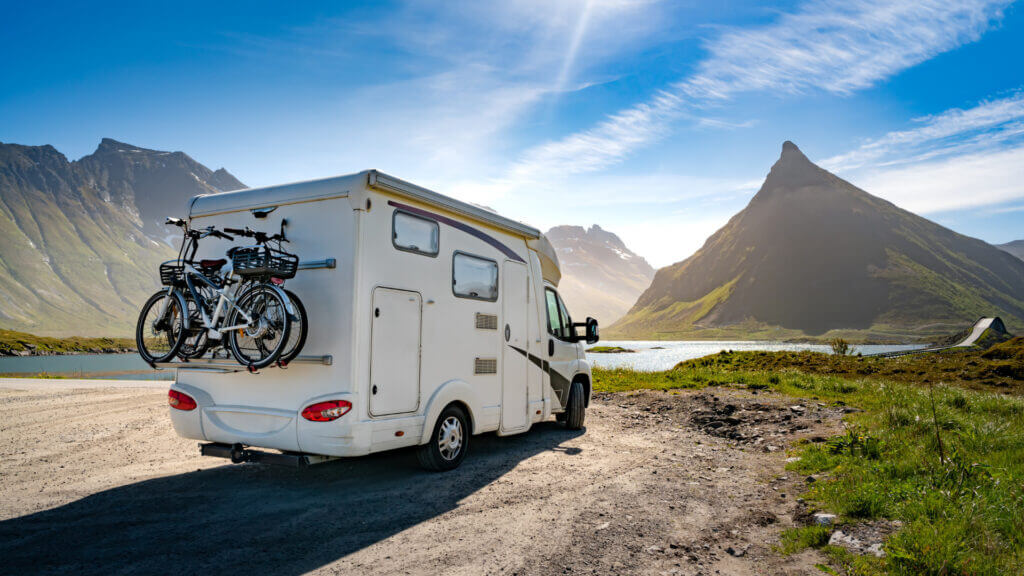
Can You Go Dispersed Camping Anywhere?
While many national forests and other government agencies allow you to camp for free on public lands, it doesn’t mean you can camp anywhere.
Many of these agencies often require campers to be 100+ feet from a water source and set up camp away from trails and plains.
Many camping locations may close seasonally, especially at higher elevations. You may not have access to campsites or roads during the off-season.
Be sure to confirm with a local ranger or government authority regarding the status of local campgrounds and parks.
Is Dispersed Camping Safe?
Dispersed camping can be incredibly safe. However, you will often find yourself at a distance from others.
Should an emergency arise, you may wish you had help sooner.
If you don’t feel safe, you should move. Never put your friends, family, or other campers in danger.
Always have a plan to protect yourself, your RV, and others while camping.
Where Can I Find Dispersed Campsites?
You can consult many websites for information on dispersed camping. One of the most popular campground resources, Campendium, relies on user-submitted content to help other RVers. You can access it online or on the iOS app.
You can visit many other websites like Freecampsites.net and even the forest and Bureau of Land Management pages to help you find the best spots.
These sites often provide a generous amount of information regarding available spaces, finding the site, or even user reviews with pictures of potential camping options.
There are many RVers out there that leave behind trashed campsites. Many work incredibly hard to protect the privilege of dispersed camping. You may love it or hate it. Have you given dispersed camping a shot yet?




